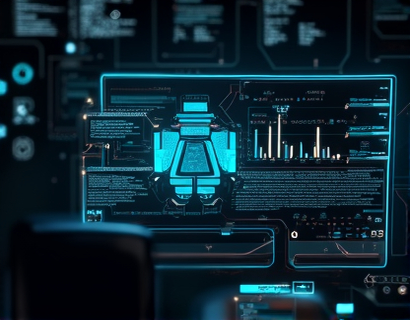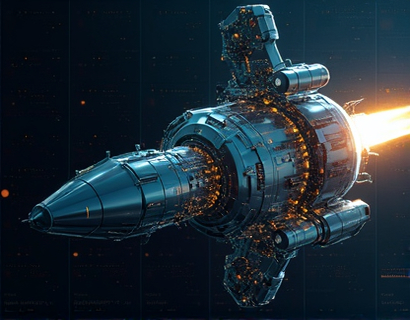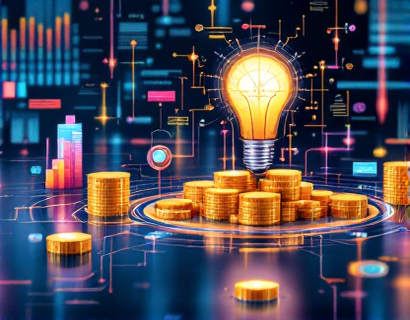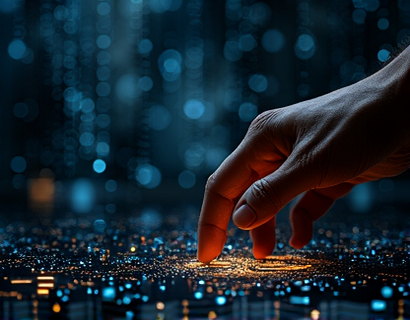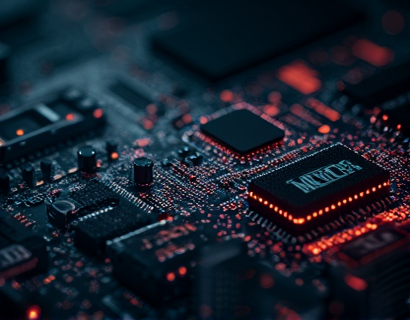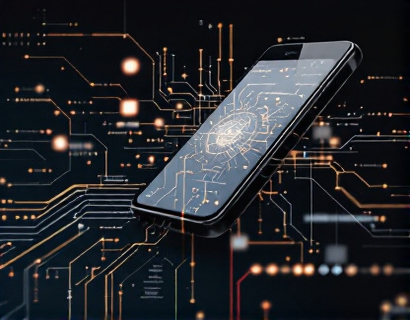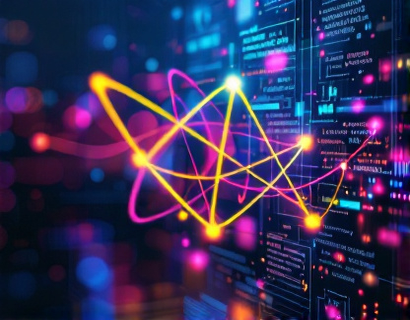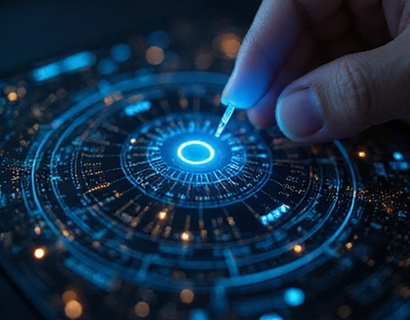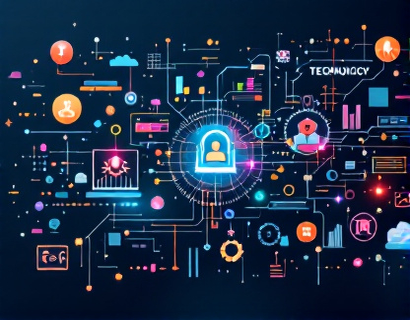Decentralized Innovation: Unlocking Next-Gen Digital Transformation with AI and Crypto Synergy
The digital landscape is undergoing a profound transformation, driven by the convergent powers of artificial intelligence (AI) and cryptocurrency. This synergy is giving rise to decentralized applications and services that are redefining user experience and engagement. As tech-savvy innovators and early adopters increasingly turn their attention to the intersection of AI and crypto, it becomes crucial to explore how these technologies are not just evolving in isolation but are creating a synergistic force that propels digital innovation to new heights.
The concept of decentralization has been a cornerstone of blockchain technology, offering a paradigm shift from centralized systems to peer-to-peer networks. When combined with AI, this decentralization takes on a new dimension, enabling the creation of intelligent, autonomous, and trustless systems. These systems can learn, adapt, and make decisions without human intervention, all while operating on a distributed network that ensures transparency and security.
One of the most significant impacts of this synergy is the emergence of decentralized applications (dApps). Unlike traditional applications hosted on centralized servers, dApps run on blockchain networks, leveraging smart contracts to automate and enforce agreements. This decentralized architecture not only enhances security and reduces the risk of single points of failure but also empowers users by giving them control over their data and interactions.
AI plays a pivotal role in enhancing the functionality and user experience of dApps. Machine learning algorithms can analyze vast amounts of data to provide insights, predictions, and personalized recommendations. For instance, in decentralized finance (DeFi), AI-driven dApps can offer sophisticated trading strategies, risk management tools, and automated portfolio management. These capabilities are not only accessible to professionals but also democratized for the average user, making advanced financial services more inclusive.
The integration of AI and cryptocurrency also fosters innovation in the realm of digital identity and authentication. Blockchain-based identity solutions, powered by AI, can provide secure, verifiable, and user-controlled identity management. This is particularly important in an era where data breaches and identity theft are rampant. Users can have confidence that their personal information is protected, and they retain full ownership and control over their digital identities.
Another area where AI and crypto synergy is making waves is in supply chain management. Decentralized platforms can track products from origin to destination with unprecedented transparency. AI algorithms can analyze this data to optimize logistics, predict demand, and ensure compliance with regulations. This not only enhances efficiency but also builds trust among stakeholders, as every step of the process is recorded on an immutable ledger.
The healthcare sector is also witnessing transformative changes through the combination of AI and blockchain. Decentralized health records, powered by AI, can provide patients with a comprehensive and secure view of their medical history. AI-driven analytics can help in early disease detection, personalized treatment plans, and drug discovery. This not only improves patient outcomes but also reduces healthcare costs by streamlining processes and eliminating redundancies.
In the realm of gaming, the synergy between AI and crypto is giving birth to new economic models and immersive experiences. Decentralized gaming platforms use blockchain to ensure fair play, reward creators, and distribute in-game assets transparently. AI enhances these platforms by creating dynamic and adaptive game environments, non-playable characters (NPCs) with realistic behaviors, and personalized gaming experiences. This fusion not only attracts a broader audience but also opens up new revenue streams for developers and players alike.
The environmental impact of decentralized systems, when optimized with AI, is another area of growing interest. Blockchain's energy consumption has been a point of criticism, but AI can help mitigate this by optimizing resource usage and improving the efficiency of consensus mechanisms. For example, AI can predict network traffic and adjust computational resources accordingly, reducing unnecessary energy waste. This sustainable approach aligns with the increasing demand for eco-friendly technologies.
Moreover, the decentralized nature of these systems promotes innovation by lowering barriers to entry. Developers and entrepreneurs can build and deploy applications without the need for intermediaries, fostering a more democratic and inclusive tech ecosystem. This democratization is particularly empowering for underrepresented groups, providing them with tools and platforms to innovate and compete on a global stage.
The business model of decentralized platforms is also evolving, thanks to the integration of AI and crypto. Token economics, powered by smart contracts, allows for the creation of decentralized autonomous organizations (DAOs) where community members can participate in decision-making processes. AI can optimize token distribution, reward contributions, and ensure the smooth operation of these organizations. This not only enhances governance but also aligns the interests of all stakeholders.
However, the path to widespread adoption of AI and crypto synergy is not without challenges. Regulatory uncertainties, technical complexities, and user education are significant hurdles that need to be addressed. Regulators must strike a balance between fostering innovation and ensuring consumer protection. Technological advancements must continue to improve scalability, interoperability, and user-friendliness. Educating the public about the benefits and functionalities of these technologies is essential for broader acceptance and usage.
Despite these challenges, the potential benefits are immense. The synergy between AI and cryptocurrency is not just about technological advancement but about creating a more equitable, transparent, and efficient digital world. As more innovators and early adopters explore this space, we can expect to see groundbreaking applications and services that redefine how we interact, work, and live in the digital age.
In conclusion, the convergence of AI and cryptocurrency is unlocking a new era of digital transformation. Decentralized applications and services powered by this synergy are enhancing user experience, driving engagement, and opening up new possibilities across various industries. As the technology matures and more people embrace these innovations, the future looks promising for a decentralized and intelligent digital landscape.













